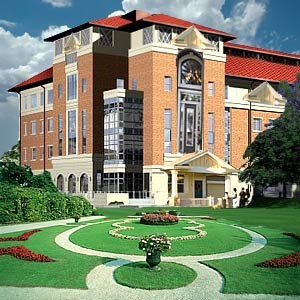Recreational Therapist
Fun and recreation as treatment, might sound odd but it has proven to be pretty effective. Recreation therapists or therapeutic recreation specialists use recreation to treat and rehabilitate patients. They promote the health and wellness of patients through sports, dance, games, arts or any other form of recreational activity. These therapists work for individuals with disabilities or illness.
Recreational therapists plan, organize and manage medically-approved recreation programs for hospitals, nursing homes and other health care facilities. A profoundly rewarding career, recreational therapists' job is very special as these therapists help patients overcome physical, mental, and emotional challenges.
Recreational therapists are not recreation workers who conduct games and fun activities. These therapists work out activities based on the needs of the individual patient. They interact with the patient, study the medical records of the patient, and interact with the family of the patient to arrive at a program for the patient. Recreational therapists work with patients in hospitals, at patient's home or at any outdoor place like swimming pools, restaurants, etc.
Recreational therapists usually train patients in relaxation techniques, proper body mechanics for participation in recreation activities, stretching and limbering exercises, energy conservation techniques etc. These therapists observe and record patient reaction, participation, progress, etc.
Recreational therapist job
- A study conducted by the U.S. Bureau of Labor Statistics points out that a person who wishes to become a recreational therapist should be trained to apply recreational techniques to patient's specific needs.
- Recreational needs include use of animals, games, arts and crafts, drama, dance and movement, sports, music, community outings, etc.
- These recreational activities are believed to help reduce anxiety, depression and stress in patients.
- These activities are believed to quicken recovery in patient's suffering from motor functioning and reasoning abilities.
What do they do?
- Develop recreational activities based on the patient needs and interests. While devising a program, therapists also look into the medical records of the patient and consult the concerned doctor before devising the program.
- This therapy helps build the confidence of a person by reducing or eliminating the effects of the disability or illness.
- Counsel and encourage patients to participate and develop recreating or leisure activities.
- Train patients in sports, arts, dance, etc wherein their psychological and physical needs are fulfilled.
- Encourage patients to develop new skills and get actively involved in health-promoting leisure activities.
- Encourage patients to educate themselves on medical safety, etc.
- Recreational therapists are asked to assess patients from medical records, observations and consultations. By assessing these records, the therapists can create and direct therapeutic interventions.
- Therapists also help patients mingle with the community by teaching them to utilize recreational activities and community resources.
- Recreational therapists work either singly or in groups.
Recreational therapist - educational programs
Bachelor's degree: Holding a bachelor's degree in therapeutic recreation will fetch you an entry level job. The program covers subjects like human anatomy, professional ethics, abnormal psychology, treatment and program planning, physiology, professional ethics, medical and psychiatric terminology, characteristics of illnesses and disabilities, etc. Students have to undergo an internship in the field as a part of the curriculum.
Certified therapeutic recreation specialists (CTRS): These students are trained to treat patients in special areas of physical or mental disabilities. When therapists are certified by the national council, they hold a certificate from NCTRS
Eligibility criteria for enrolling in certificate programs
- To train for certificate programs, students should hold a bachelor's degree in recreational therapy
- Qualify in an entrance examination
- Undergo and complete internship under the CTRS
Recreational therapists can specialize themselves in a certain type of therapy. Therapists can also earn certifications in specific therapies, such as art therapy, aquatic therapy, etc.
Recreational therapist skills
- Immense patience
- Perseverance
- Sensitivity towards the patient
- Fresh and interesting ideas
- Active physical skills
- Device programs as per the individual patient needs
Recreational therapist job prospects
A study indicates that there is a growing demand for professionals in this category. It is understood that this growth pattern will continue for the next decade or so. It is because these therapists are in demand to serve a growing number of older persons and persons with disabilities.
Job opportunities are provided by hospitals and nursing homes. Adult day care, social service, assisted-living, and physical and psychiatric rehabilitation sites will also call for the service of such therapists.
In acute health-care facilities like hospitals and rehabilitation centers, recreational therapists treat and rehabilitate patients along with physicians, nurses, physical therapists, psychologists, etc. They work as a part of a team.
Structured group activities are used to improve and keep up general health and well being. They also treat patients and offer support to prevent further medical problems and secondary complications related to illness and disabilities.
Community-based therapeutic recreation specialists might work in parks, recreation departments, in special education programs for school districts, etc. These therapists help their patients to develop specific skills while training them in exercises, creativity, fun, etc.
Current earning potential for recreational therapists range from US$ 17,000 to US$ 49,000 a year.
Top of the Page: Recreational Therapist

 Career Development
Career DevelopmentWoman in the Workforce - Work ethic, work spirit and latest happenings on the work scene ...
Career Choices for Women - Career options, interview guides and tips ...
Women Entrepreneur Qualities - Be your own boss...
Achieving Work Life Balance - Delicate balance ...
Pre Hire Assessment - Measuring suitability ...
Ability and Aptitude Tests - Fit for the job ...
Internship Application Tips - Further your prospects ...
Free Career Aptitude Test - Unique insight into your talents ...
Resume Builder - Resume tips to climb the career ladder ...
Employee Satisfaction Survey - Read the pulse of an organization ...
Gini Coefficient - Gender Income Equality ...
Career Planning
 Managing Work Stress - Juggling time and responsibilities ...
Managing Work Stress - Juggling time and responsibilities ...Midlife Career Change - Crossroads of life ...
Career Assessment - Assess your skills to choose the right career ...
Career Counseling - How can a career counselor help you? ...
IQ Score - Tests of intelligence and ability ...
Career Aptitude Test - Provide unique insight into your talents and skills ...
Free Psychometric Tests - Make right hiring decisions ...
Spatial Reasoning Tests - Visualize complex shapes ...
Performance Appraisal - Assessment for future performance or potential ...
Telecommuting - Your virtual office ...
Career Opportunity
 Biomedical Engineering Jobs - Integrate medicine and engineering ...
Biomedical Engineering Jobs - Integrate medicine and engineering ...Actuary Jobs - Evaluating future risk ...
Market Research Analyst - Researching Market Potential ...
Family Counselor - Lend a patient ear ...
Career in Botany - Explore plant kingdom ...
Pet Sitting Service - Love for animals ...
Screenplay Writing - Weaving movie magic ...
Foreign Language Interpreter - Say it right ...
Psychology Degree Career - Understanding people ...
School Psychologist Career - Collaborate with educators and parents ...
Museum Curator - Appreciation of history, environment, arts ...
Graphic Arts Career - Visualize, arrange and attract ...
Animal Care Career - Far from the routine ...
Secretarial career - Office professional ...
Investment Banker - Ample growth prospects ...
Registered Dietitian - Address nutritional needs ...
Landscape Architect - Create aesthetic surroundings ...
Retailing Management - Work with merchandizing systems ...
Gemology Career - Eye for detail ...
Summer Jobs for 13 year olds - Learn and earn ...
Human Resources Jobs - Core business driver...
Summer Teaching Jobs - Passion for teaching ...
Summer Internship Program - Valuable work experience ...
Home Caregiver - Assisted living ...
Airline Careers - Take a peek into high flying careers ...
Fitness Career - Fitness is big business ...
Chiropractor - Treatment by hand ...
Interior Design Career Guide - - What makes a successful interior decorator? ...
Nursing Career Guide - Aspects of the nursing vocation ...
Real Estate Career Opportunity - Careers in land and property management ...
Newborn Photography - Capture the innocence ...
Massage Therapist Jobs - Knead stressed muscles ...
Recreational Therapist - Promote wellness through recreational activity ...
Hypnotherapist Job - Work on the subconscious ...
Ecommerce Consultant - Benefit from an online presence ...
Franchise Consultant - Dream of your own business but don't know where to start ...
Online Career Guide
 Freelance Writing Opportunity - Provide life to words ...
Freelance Writing Opportunity - Provide life to words ...Online Tutoring Services - Learn from home ...
Effective Web Content Writing - Writing content for impact ...
Proofreading Services - Checking content for errors ...
Telemarketing Services - Talk your way through ...
Transcription Services - Highly accurate and productive ...
Hospitality Career
Culinary Art School - Whip up a great career ...
Cruise Ship Jobs - Keeping up with increasing needs ...
Event Management Jobs - Coordinating many agencies ...
Bartending Job - Non-traditional career ...
Hospitality Career - Serving people and enjoying it ...
Restaurant Management - Another management career ...
Beauty Career
 Professional Makeup Artist - Transform your look ...
Professional Makeup Artist - Transform your look ...Wedding Coordinator - An integral part of important function ...
Hair Stylist - Get your clients to look and feel beautiful ...
Beauty Makeover Consultant - Providing a makeover ...
Fashion Design Career - Flair for style ...
Modeling Career - Find out what it takes to be a model ...
Legal Career
 Loan Officer Training - Assist and guide loan applicants ...
Loan Officer Training - Assist and guide loan applicants ...Fraud investment Lawyer - Securities litigation attorney ...
Law Enforcement Career - Competitive and interesting options ...
Top of the Page: Recreational Therapist

